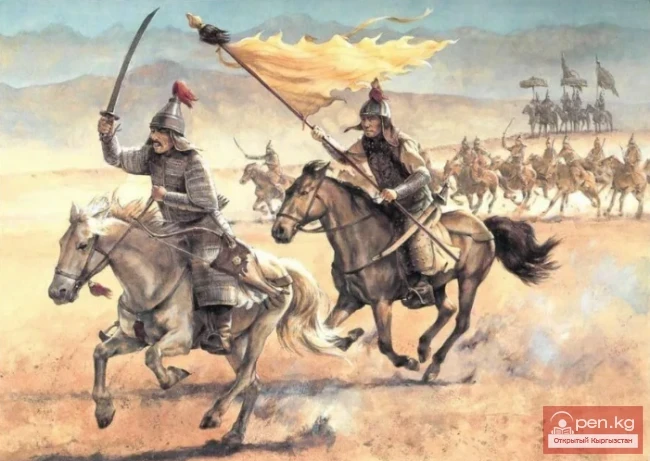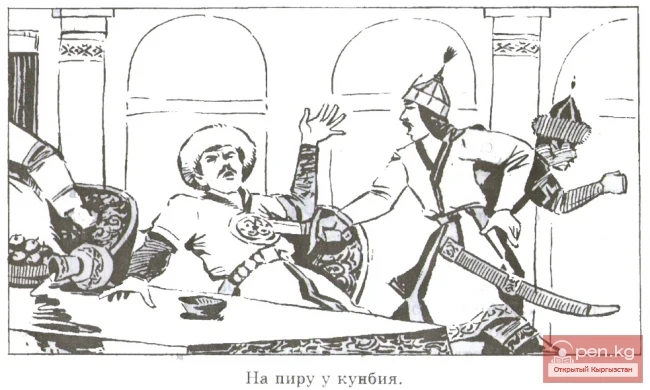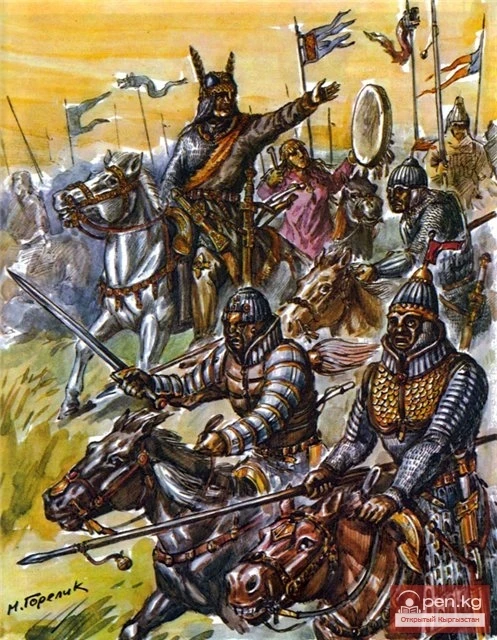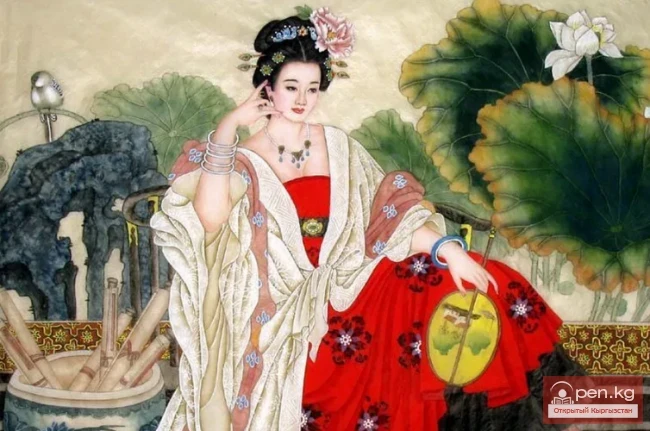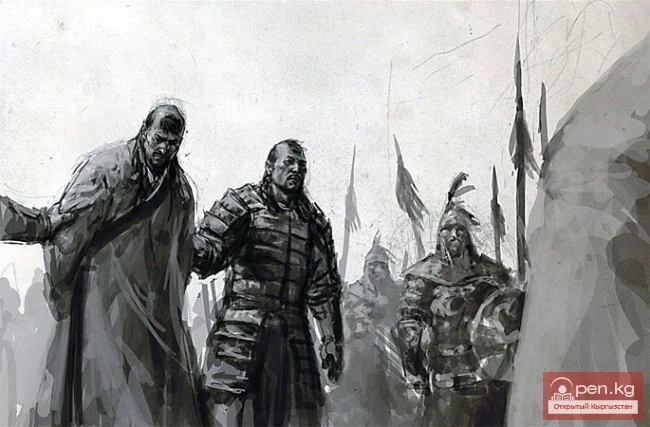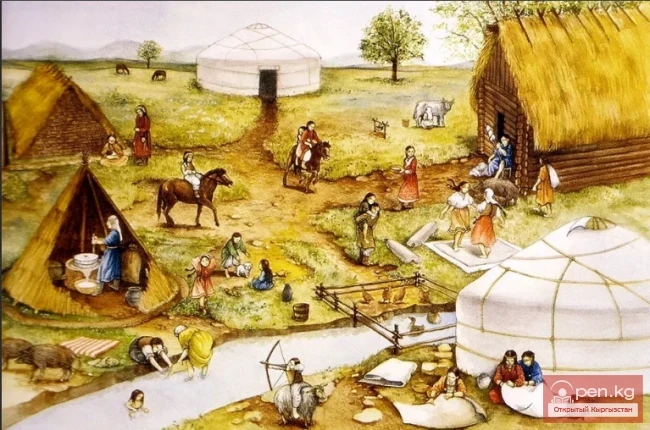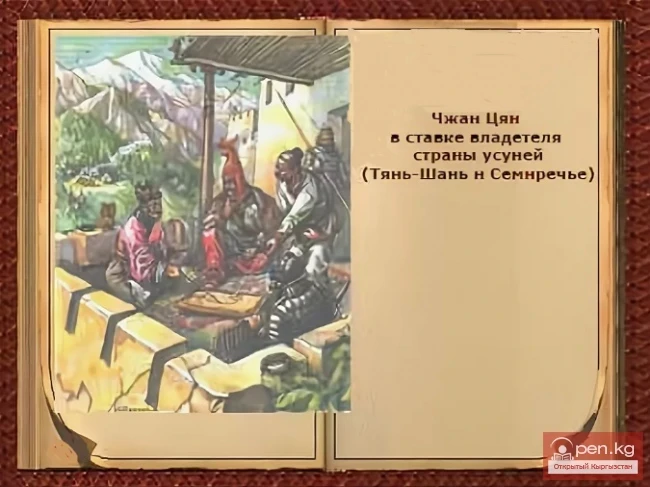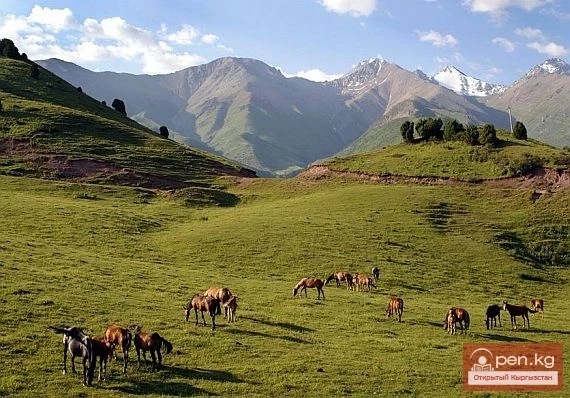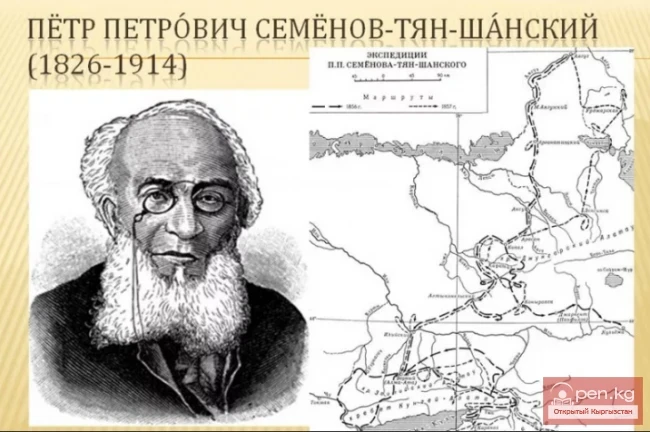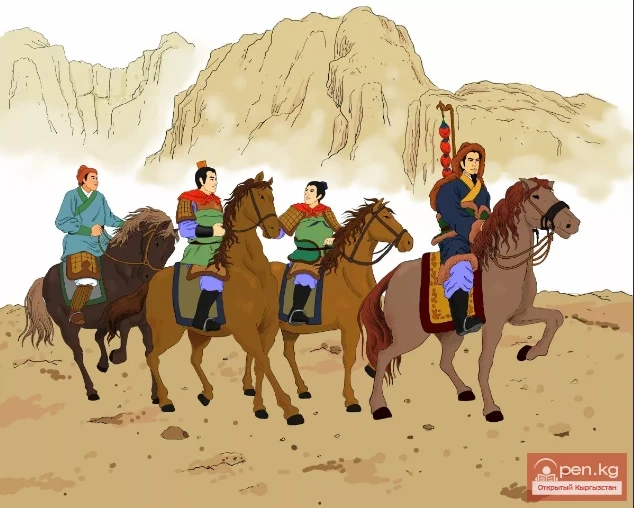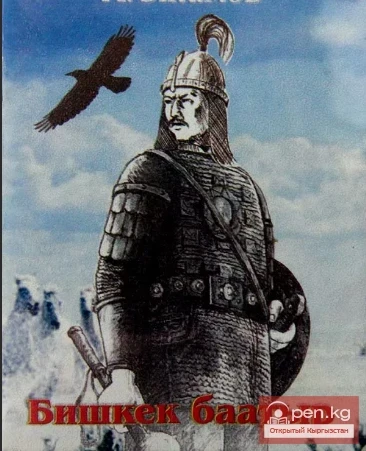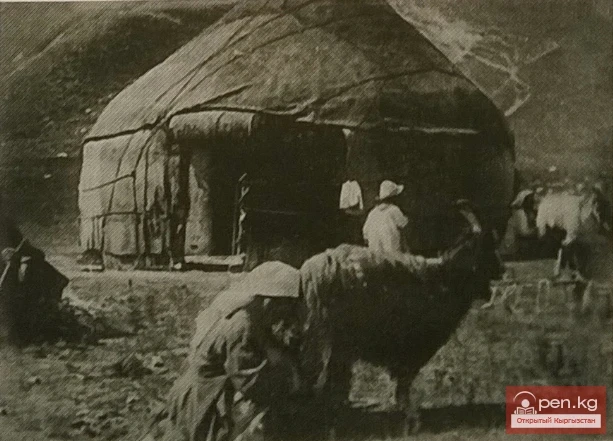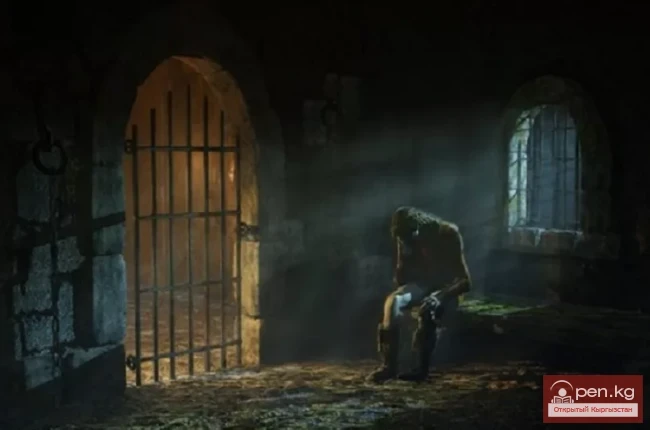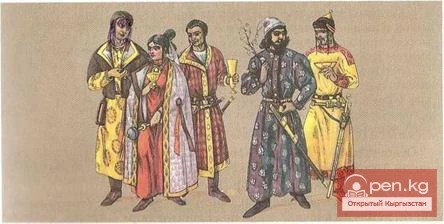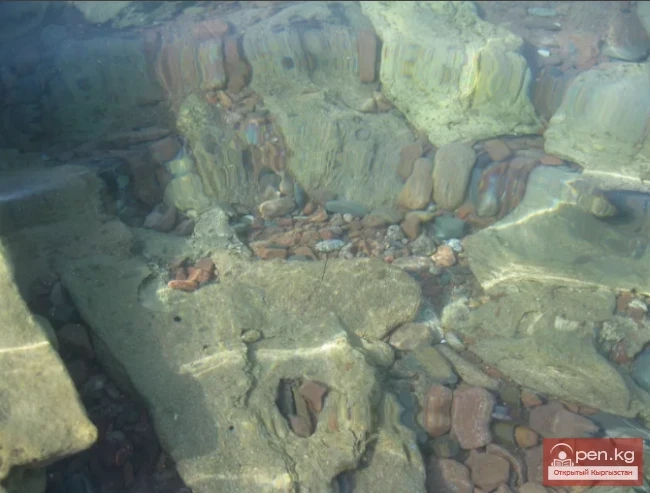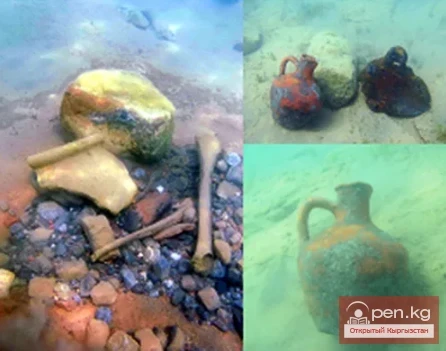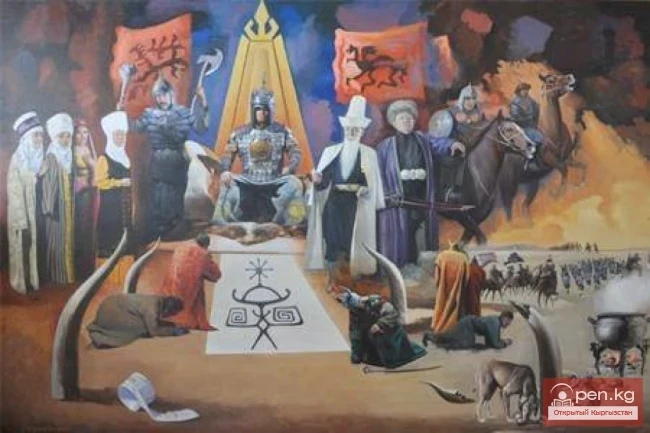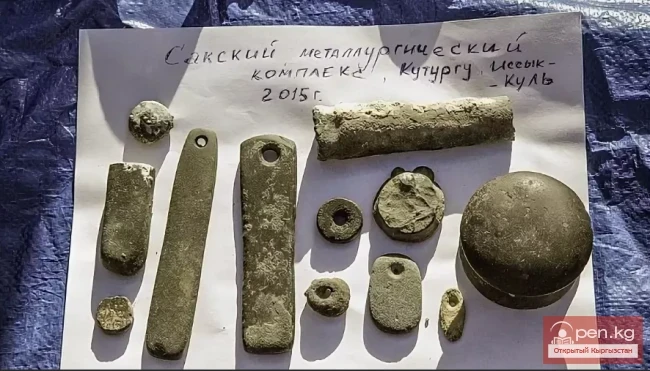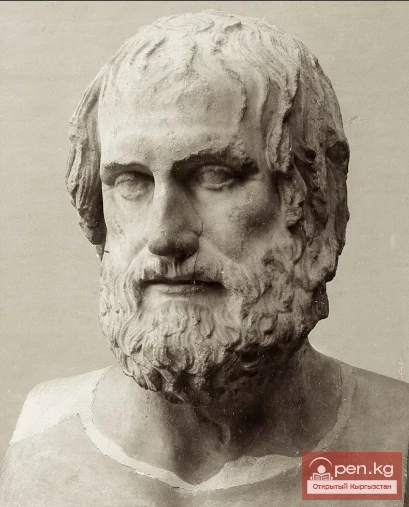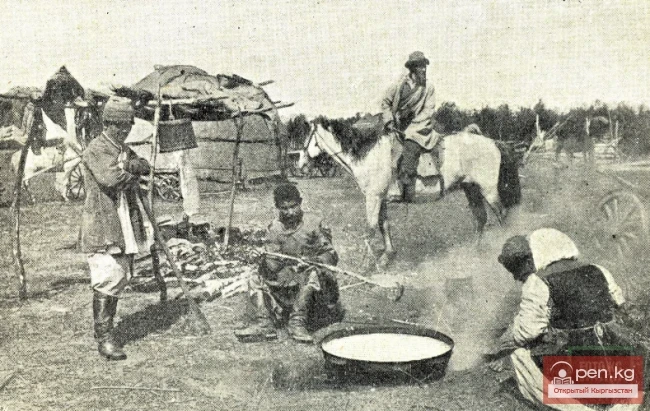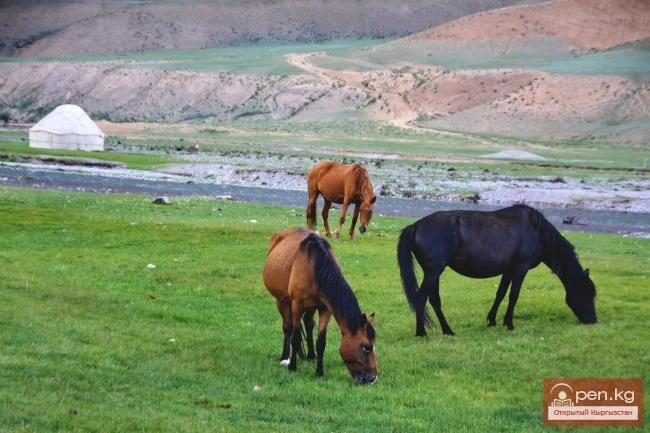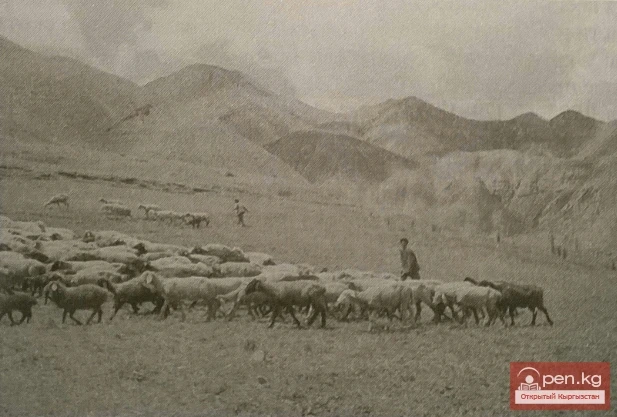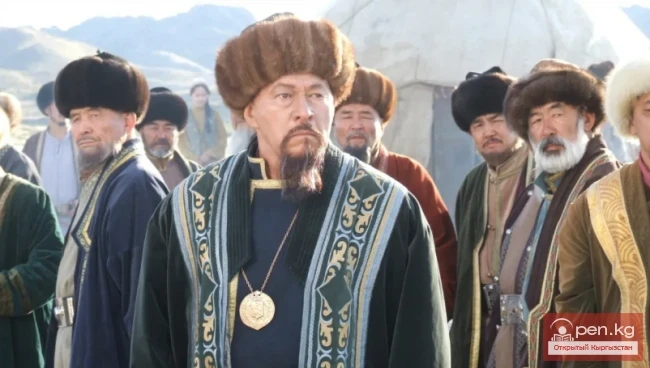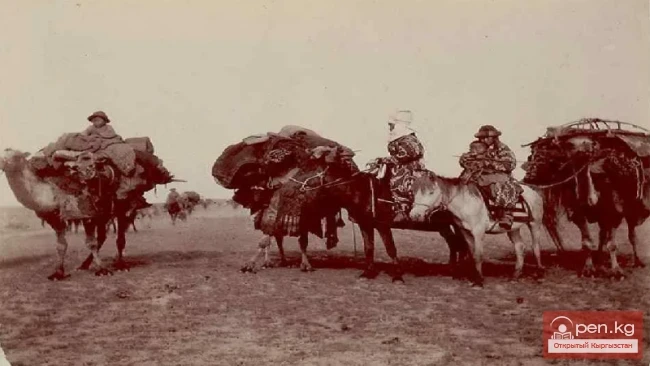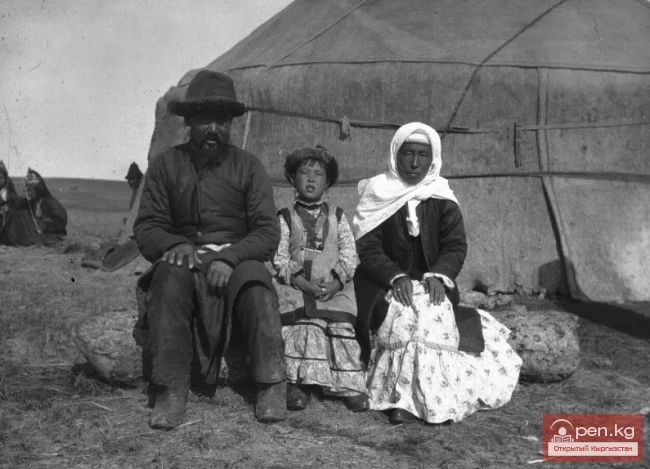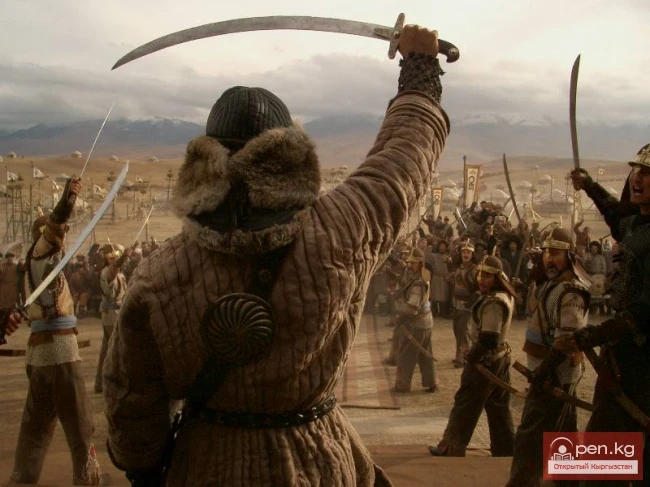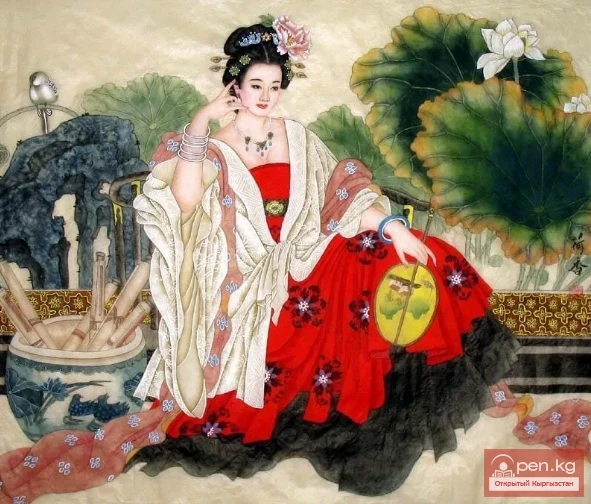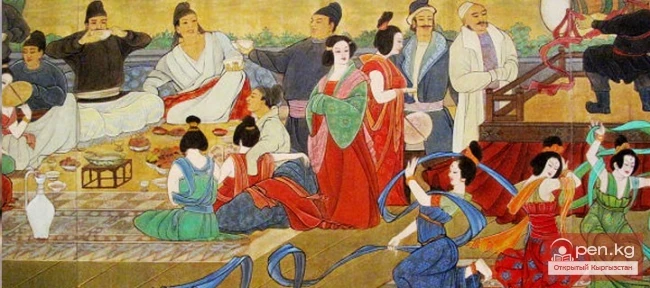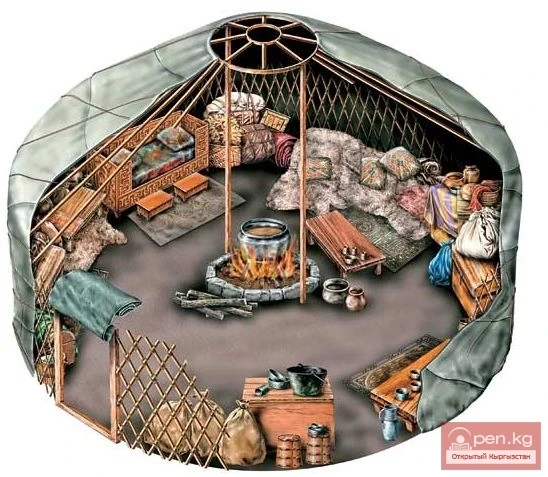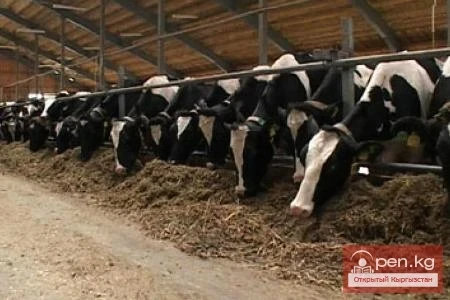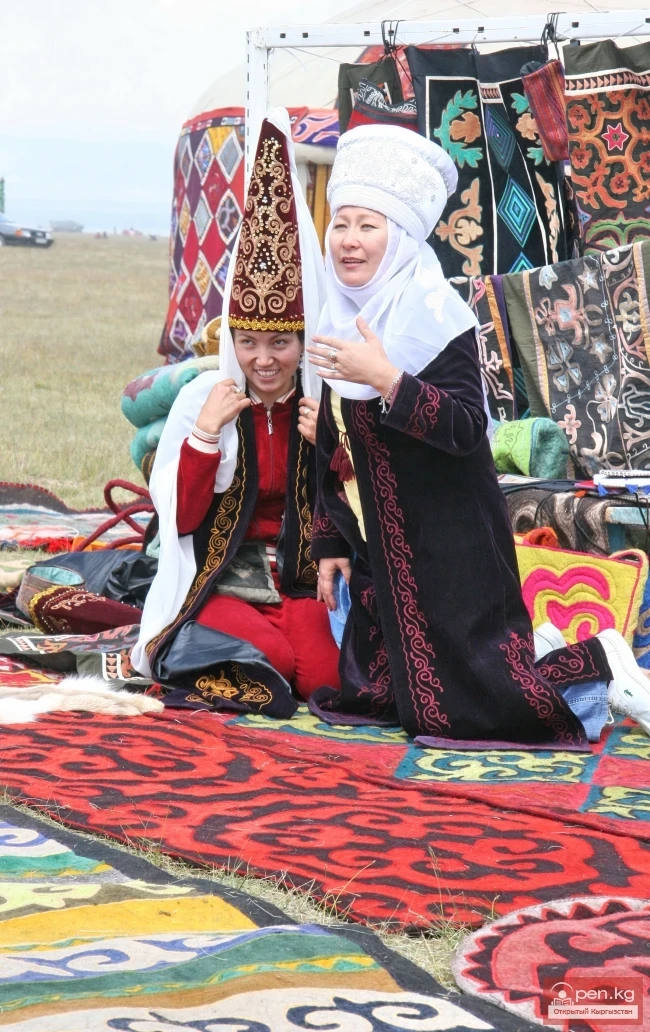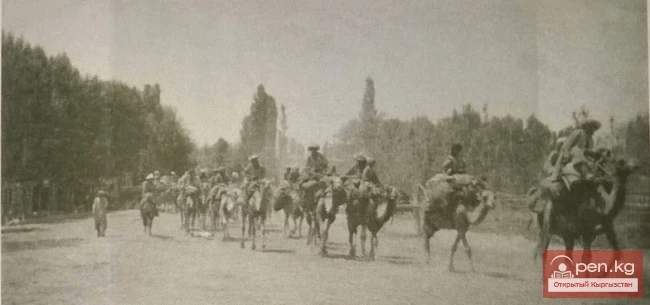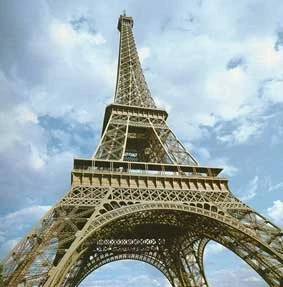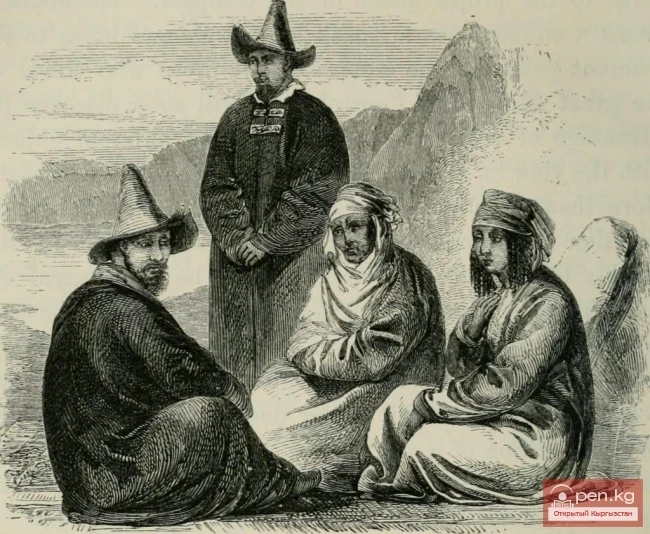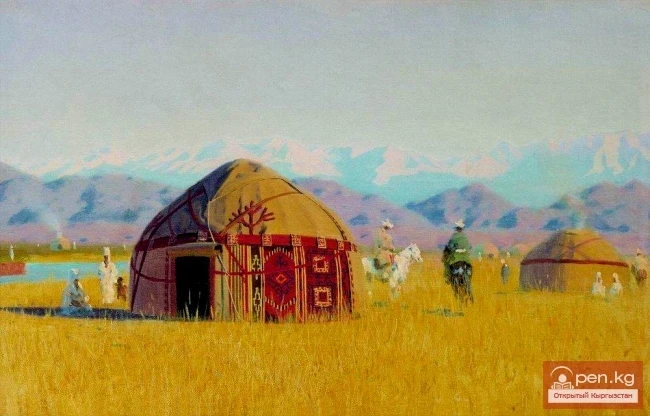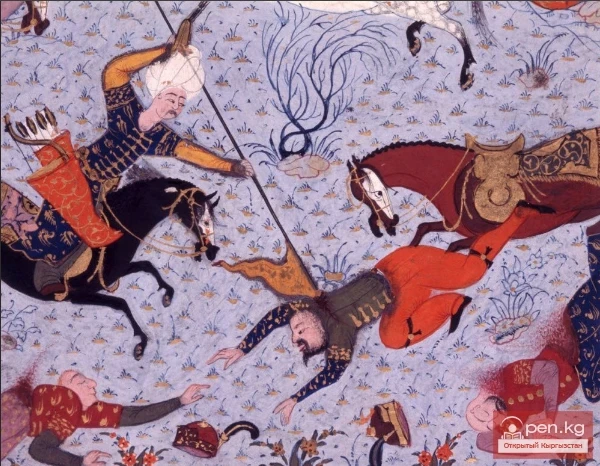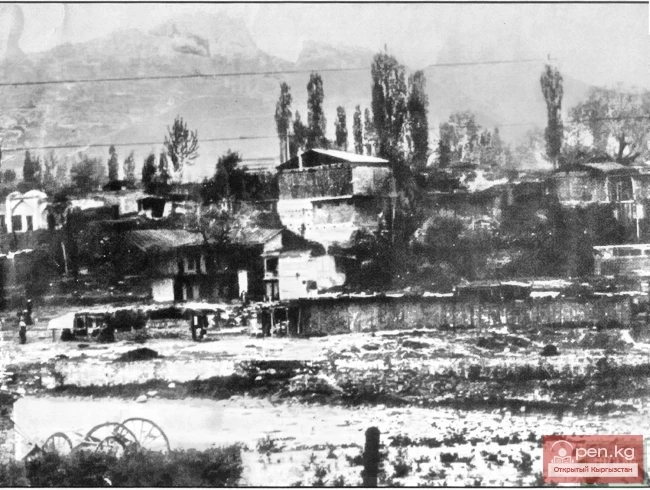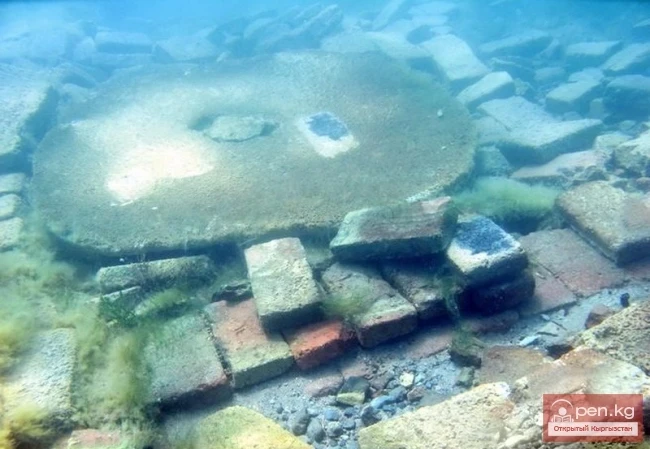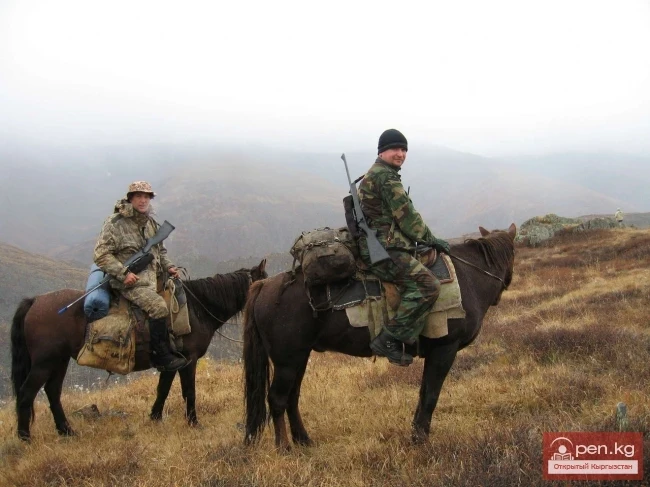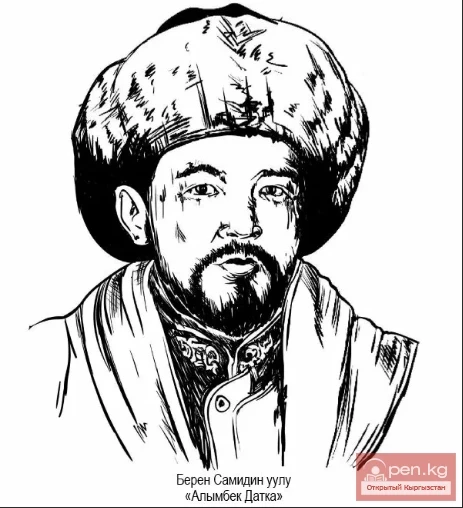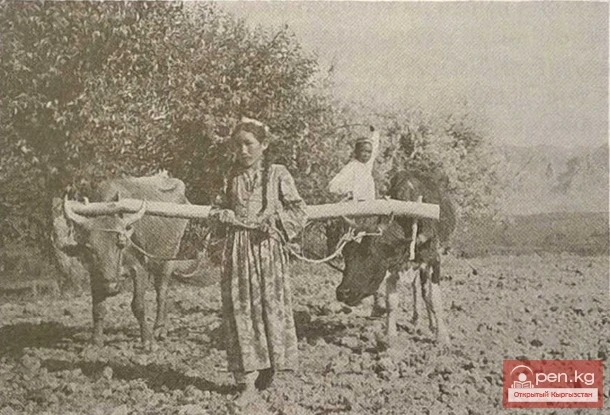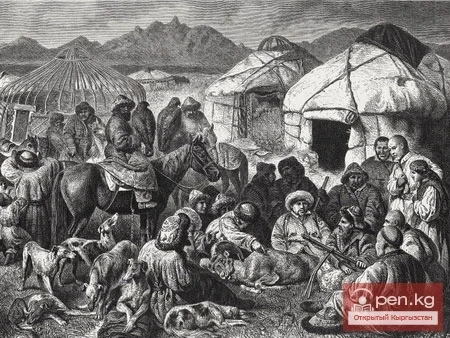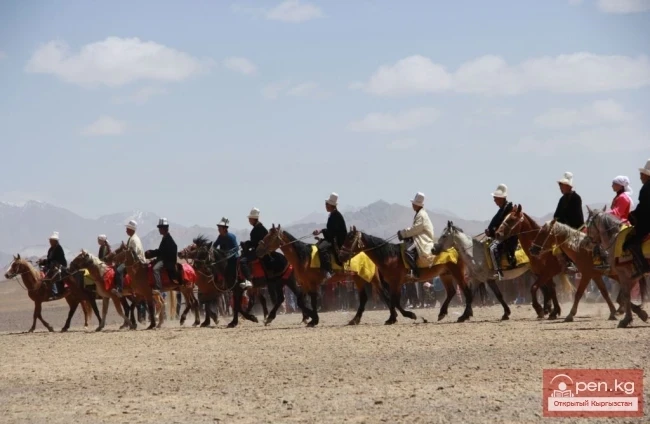Internal Political Struggle of the Usuns for Supreme Power
The internal political history of the Usuns is a story of constant infighting and struggle for supreme power among the highest aristocracy, which was interfered with by Han emperors and Hunnic rulers. Only during the reign of the Kumbag Tsylimi (45—14 BC) did the lands of the Usuns experience "deep silence and peace," as he "acted with firmness." Ultimately, Tsylimi also fell victim to a conspiracy—he was assassinated by one of the ostensibly subservient princes.
There was already a chasm of property inequality between the poor and the rich Usuns. The main criterion of wealth was the possession of horses, which, according to Han dynasty historical accounts, were already privately owned by individuals. "In Usun, there are many horses. The richest people have four to five thousand heads of horses." This report suggests that property differentiation among the Usuns had reached developed forms. It turns out that among them there were "the richest," which implies the existence of "merely rich" as well. The Kumbag himself possessed immense wealth, as he could give away a thousand heads of horses as a bride price for one of his wives. At the other end of the property inequality spectrum was the Usun poor. Ethnographers calculated that to run a livestock economy that could provide only for one family, a herd of 25 conditional horses (1 horse = 6 sheep) was necessary. Hence, it is clear that the "richest" Usun families had livestock at least 160 to 200 times more than that of an ordinary herder.
According to customary law, which existed in all pastoral societies, the owner of the livestock was the actual owner of the pastures. Ownership of pastures was secured by the construction of wintering facilities and the burial of ancestors, over which well-visible burial mounds were erected. The areas of winter pastures corresponded to the number of livestock. Practice determined that for the wintering of one horse, 8—10 hectares of natural pastures of average quality were needed. Thus, the polar sizes of pastures owned by families of different wealth ranged from 200—250 hectares to 32—50 thousand hectares.
In the 1st century BC, the Usuns apparently began to have lands that were only at the disposal of the supreme ruler. Thus, Kumbag Tsylimi ordered that "no one dare to graze livestock on his pastures." This important act is usually interpreted as evidence of the beginning of the formation of private land ownership. However, another explanation is also possible. On the pastures owned by the Kumbag, it is unlikely that foreign livestock could be grazed without punishment even before his order. Most likely, this act can be seen as an attempt to form state koruks—prohibited, protected pastures. Such koruks are common in the land practices of the Western Turkic khans. One of them was in the Minbulak area (Talas Valley), where herds of marals lived in natural protected conditions.
The second—located in the eastern part of the Chuy Valley—is described by the medieval Arab historian Tabari: "The khakan had a protected meadow and mountain, to which no one approached or hunted there; they became for war. The continuation of the meadow is three days and the mountain is three days [of travel]." Such protected lands always remained untouched by livestock and were used for fattening war horses and grazing flocks in case of military actions.
Information from written sources about the sharp property differentiation in Usun society is fully confirmed by archaeological materials. The rich and noble were buried with great pomp: in a wide and deep pit, covered with logs, a large number of belongings belonging to the deceased were placed, among which were gold and items brought from distant lands. A majestic burial mound—over 10 meters high—was erected over the pit. Next to such steppe pyramids, only the experienced eye of an archaeologist can distinguish a barely noticeable mound under which lay the ashes of an ordinary community member. No matter how much the relatives of the deceased poor person mourned, they could only allocate one, at most two vessels with milk or meat broth with millet for the "long journey to the eternal heavenly pastures." These burials were so poor that the first researchers of such mounds near the village of Chelpek (in Preissykul) M. V. Voievodsky and M. P. Gryaznov mistook them not for the graves of ordinary herders, but for the miserable burials of their slaves.
The formation of a class society was accompanied by popular uprisings, riots, migrations, conspiracies, which even led to the murders of Kumbags.
The ethnic affiliation of the Usuns is still unclear. Some researchers believe that the Usuns were one of the Scythian tribes and spoke an Eastern Iranian language. Others assert that the Usuns were part of the Hunnic tribes and spoke Turkic. The prominent Russian orientalist N. A. Aristov wrote (albeit too categorically) that the Usuns are direct ancestors of modern Kyrgyz, and that the self-designation of the Usuns has always been Kyrgyz. However, it is accepted without question by scholars that both the Sakas and the Usuns were components in the conglomerate of ancient Turkic tribes from which the Kyrgyz ethnicity was formed.
Skulls from burials excavated in Kyrgyzstan are mostly Europoid and resemble the skulls of the Sakas, but with a higher percentage of Mongoloid admixture.
By the end of the first half of the 1st millennium AD, the Usuns lost their former power. They were absorbed by the Western Turkic tribes.
Usuns in Preissykul
